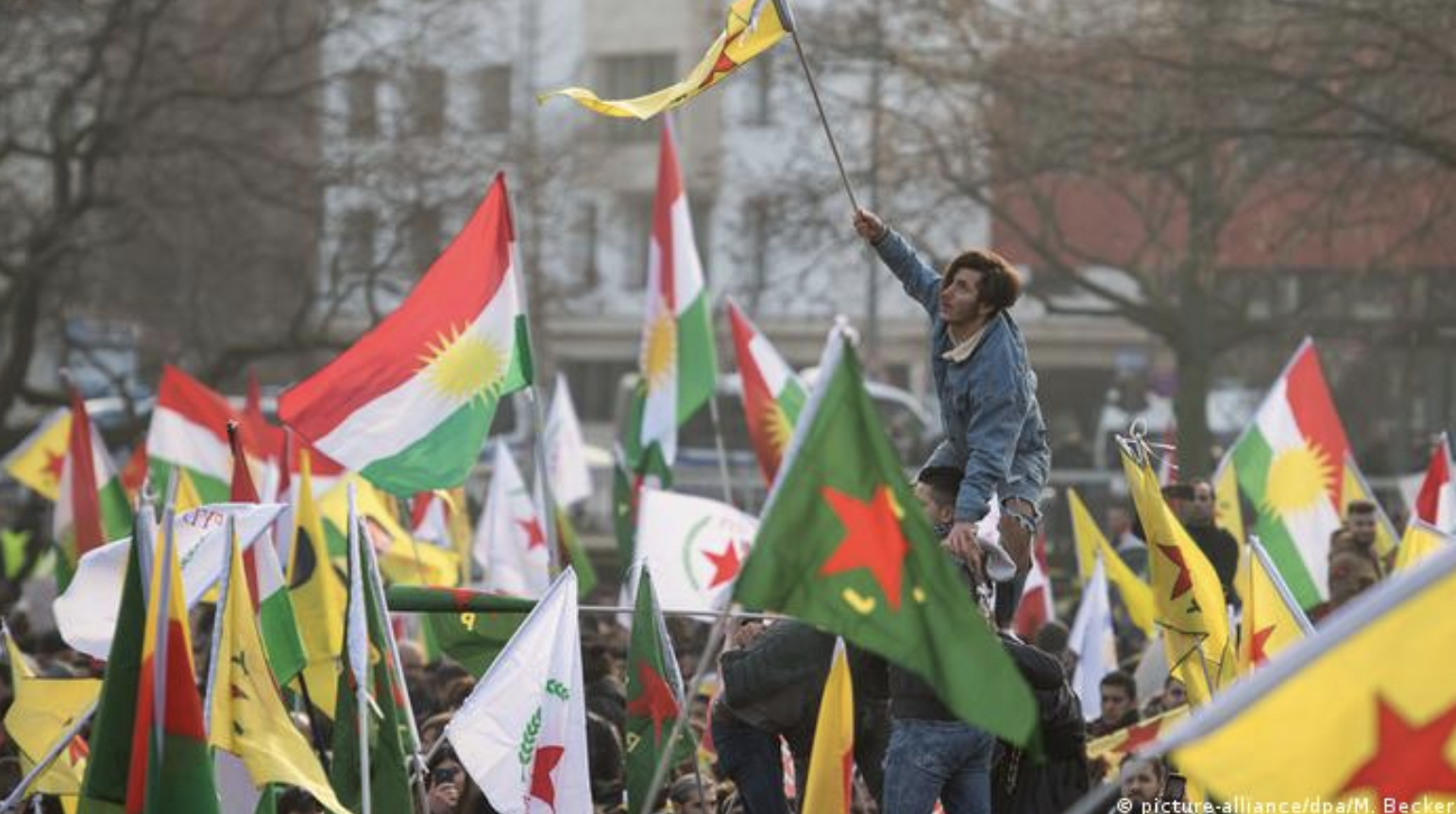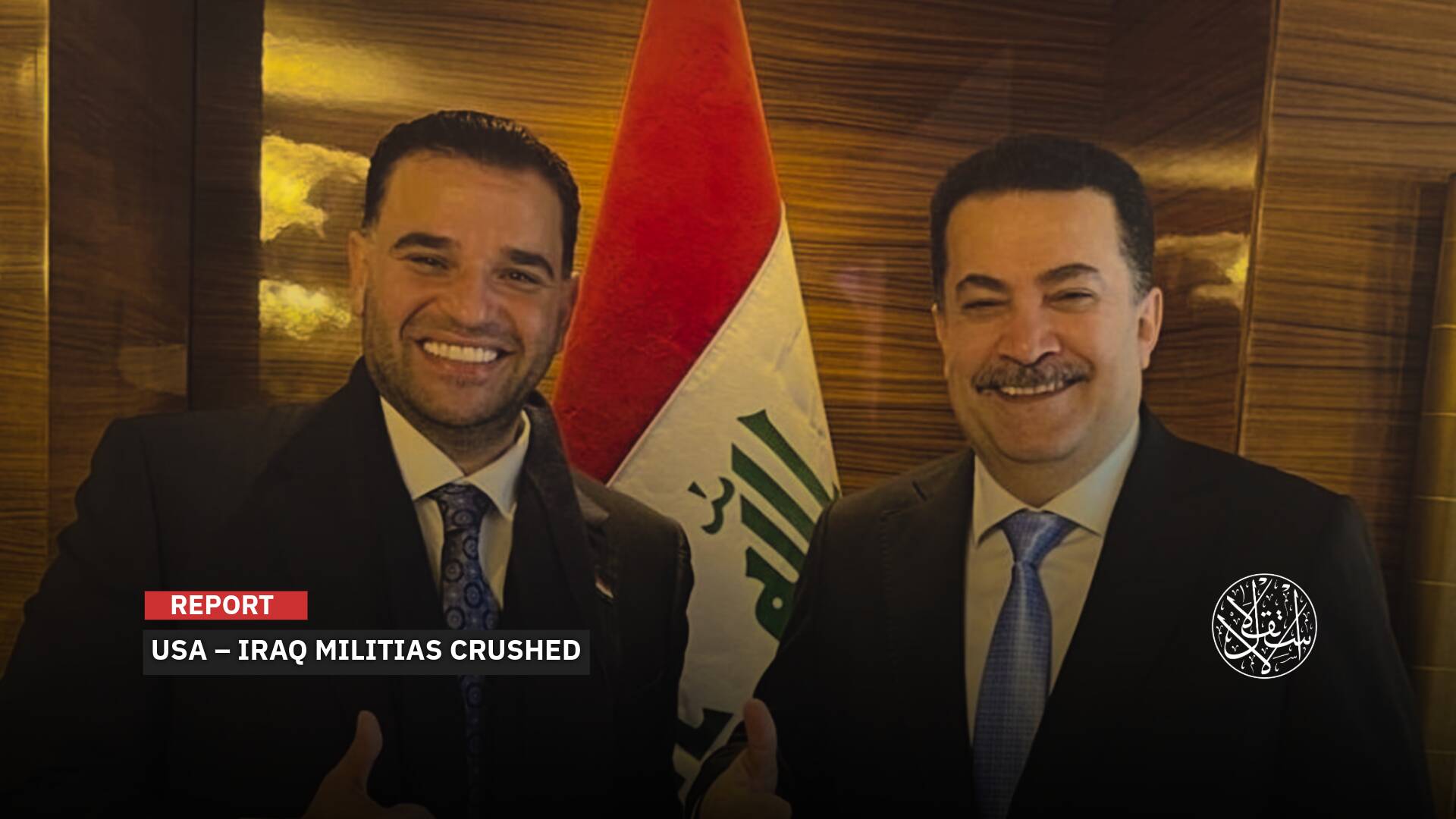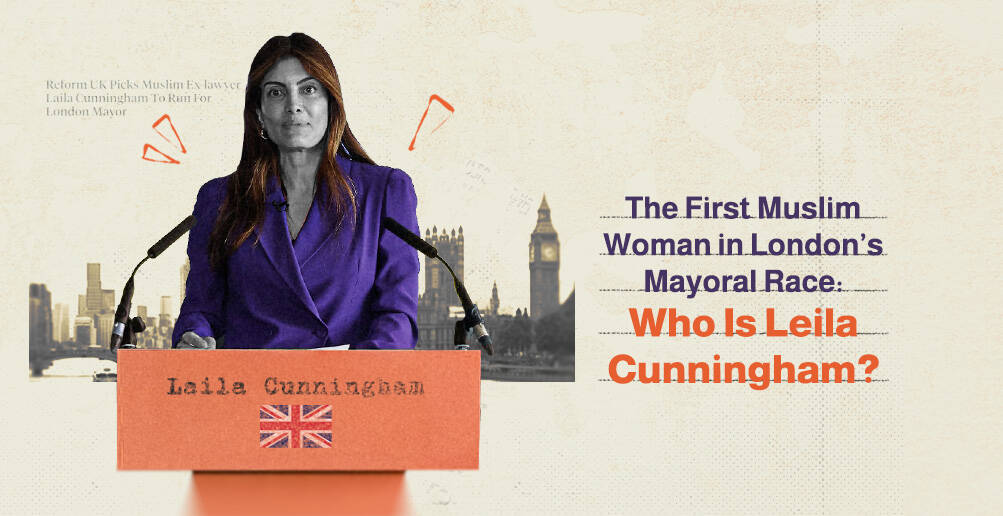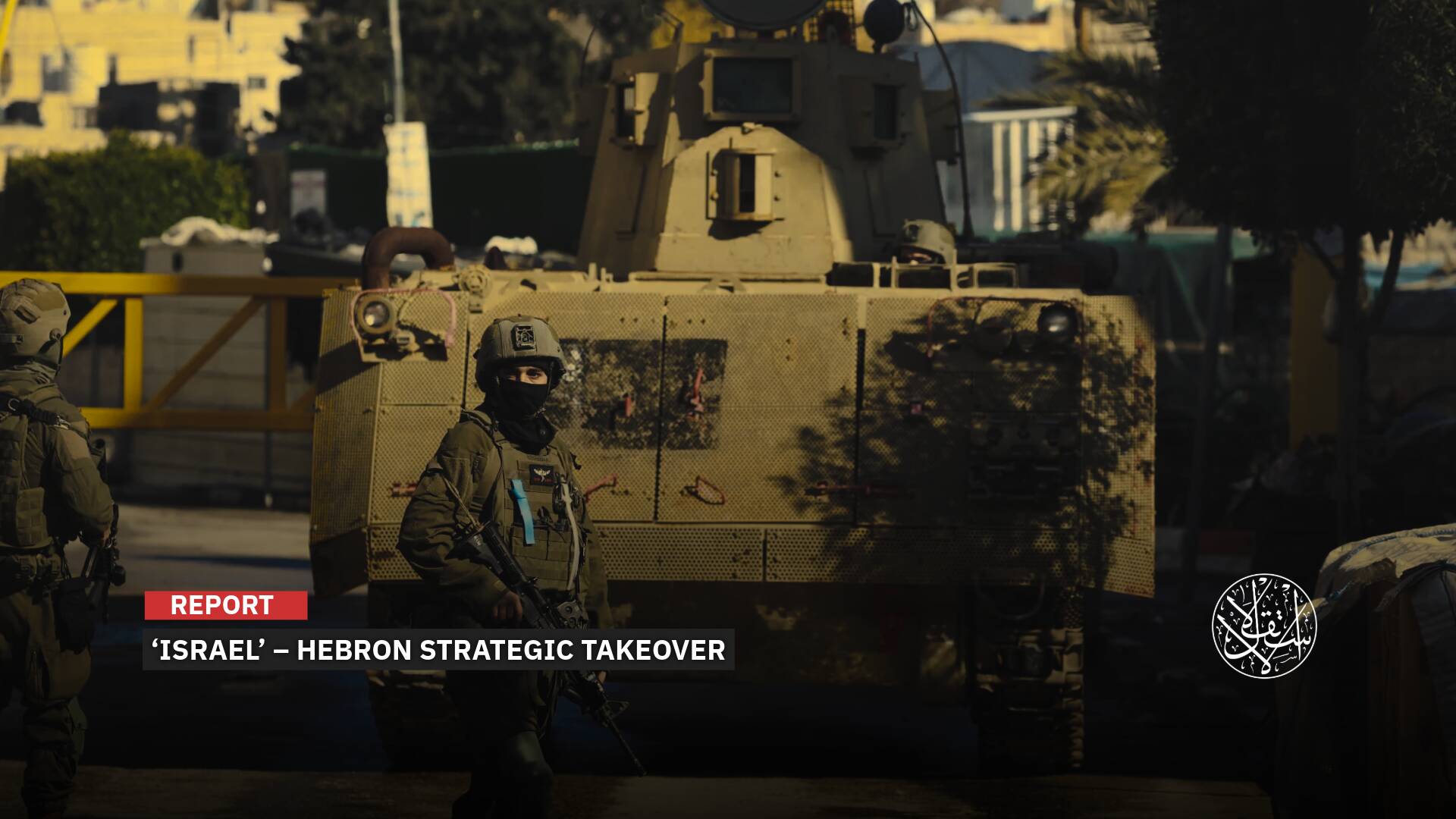What Happens to Foreign Fighters After the PKK’s Collapse? Why Europe Is Worried

The PKK’s activity in European countries reaches the level of organized crime.
The recent announcement by the PKK of its dissolution has opened a wide debate about the fate of its foreign fighters in Turkiye, amid European fears that some of its leaders and members may move to the continent.
The PKK’s loss of regional control is pushing European countries to end the party’s decades-long dominance and influence over the Kurdish diaspora, which it used to secure funding and recruit members for conflicts in Turkiye, Iraq, and Syria.

The Dissolution Decision
On May 12, 2025, the PKK announced its dissolution, ending over four decades of armed rebellion against the Turkish state that left more than 40,000 dead.
In a statement reported by the pro-PKK Firat News Agency, the party declared it had fulfilled its “historical mission” and “brought the Kurdish issue to a resolution through democratic politics.”
The PKK’s 12th Congress, held in the Qandil Mountains in northern Iraq from May 5 to 7, 2025, decided to dissolve the PKK’s organizational structure, end armed struggle, and cease all activities carried out in its name.
Duran Kalkan, a member of the PKK’s executive committee, told delegates, “This is not the end, but a new beginning.”
The ruling Justice and Development Party (AKP), led by President Recep Tayyip Erdogan, welcomed the move as “an important step toward making Turkiye terrorism-free.”
This announcement followed a call from Abdullah Ocalan, the PKK founder imprisoned on Imrali Island since 1999, who on February 27, 2025, urged fighters to disarm and dissolve the party.
Subsequently, on March 1, 2025, the PKK, classified by Ankara and its Western allies as a “terrorist organization,” declared an immediate ceasefire.
The party, founded in 1978, launched its armed insurgency against Ankara in 1984, aiming to establish a Kurdish state for the approximately 20% of Turkiye’s 85 million population who are Kurdish.
Turkiye has maintained military bases in northern Iraq for 25 years to confront PKK fighters stationed in camps in the Kurdistan region.
The PKK has been banned in Germany since 1993 and designated a terrorist organization by the EU since 2002, with sanctions including asset freezes and bans on financial support.
The PKK exploited legal loopholes and ambiguous policies in Europe to recruit fighters and fund its activities.
European countries have faced criticism for allegedly tolerating PKK activities, including propaganda and recruitment efforts in France, Austria, Switzerland, and the Netherlands.
European Concerns
Intelligence Online reported on May 13, 2025, about European worries over the fate of foreign PKK fighters after the party’s dissolution.
With the PKK’s disarmament, European security officials are questioning what will happen to foreign fighters affiliated with the group.
Following the announcement, local intelligence agencies in European countries with large Kurdish communities—such as Germany, France, and Sweden—remain uncertain about the status of PKK fighters, who are a key point in negotiations between the party and Ankara.
Early indications from agreements suggest that fighters born in European countries (many of whom hold citizenship) may be allowed to return home, though they could pose a security risk due to their combat experience acquired over years of conflict, according to Intelligence Online.
Some fighters might choose to settle in Iraqi Kurdistan, which maintains good relations with Ankara, the magazine added.
Iraqi PKK fighters may join the Kurdistan Regional Government’s forces, while those born in Syria could return to areas controlled by the Kurdish People’s Protection Units (YPG).
The biggest unknown concerns Iranian Kurds affiliated with the PKK, as Iranian opposition groups are generally reluctant to include them.
Amid expectations that the Turkish government might issue a pardon as part of negotiations, PKK leaders are currently moving toward friendly countries like Sweden, Norway, and South Africa.
Disarmament and Future Prospects
Regarding disarmament, the PKK is expected to hand over weapons to the Kurdistan Regional Government in a delicate balancing act between the rival KDP (Kurdistan Democratic Party) and the Patriotic Union of Kurdistan (PUK), with possible UN supervision.
After months of talks with PKK leader Abdullah Ocalan, the Turkish government has only released limited and unofficial information about the negotiations, avoiding any impression of an equal-footing agreement to prevent backlash from nationalist and anti-Kurdish factions in parliament.
However, the PKK has stated it will not accept the expulsion of its members from Turkiye in any future peace talks with Ankara.
“Real peace requires integration, not exile,” Zagros Hiwa, spokesman for the PKK's political wing, told AFP in an interview on Monday, adding that “if the Turkish state is sincere and serious about making peace, it should make the necessary legal amendments so that PKK members would be integrated” into society.

Ending Influence
According to experts, the history of the Kurdistan Workers’ Party (PKK) activities in European countries has reached the level of “organized crime,” using the continent as a ground for recruitment and fundraising. Therefore, Europe’s stance after the PKK’s dissolution will focus on preventing any attempts to maintain its influence there.
Europe aims for the PKK’s disbandment to also lead to the cessation of its members’ and cells’ activities within European Union countries, including fundraising, recruitment, training, and propaganda.
For this reason, the German Foreign Ministry stated in a written announcement that the PKK’s decision to dissolve and disarm itself does not affect Germany’s designation of the Kurdish group as a terrorist organization.
Over the past years, European intelligence agencies have closely monitored PKK activities on their soil and carried out intensive arrests of its members.
According to a Europol report published at the end of December 2024, the PKK is involved in criminal activities such as drug trafficking and human smuggling in Europe, generating millions of euros in funding.
Most of the PKK’s funds are believed to originate from seemingly legitimate sources—donations, events, membership fees, and sales of goods and media products—as well as criminal activities like extortion, fraud, money laundering, and drug trafficking, the report stated.
The terrorist group reportedly collects millions of euros annually under the guise of “campaigns” throughout Europe, using the money for propaganda and recruitment.
There is also evidence that the PKK has kidnapped individuals to send them to conflict zones such as Syria or to use them in terrorist cells within the EU.
In 2023, European Union law enforcement carried out 25 arrests linked to separatist terrorism, nine of which targeted PKK members.
The PKK is known for recruitment strategies that specifically target young Kurdish refugees in Switzerland, indoctrinating and preparing them for conflict against the Turkish military, according to the Swiss Federal Intelligence Service in November 2024.
PKK supporters have carried out a series of attacks in Europe, including assaults on a mosque and a café, as well as sabotage of Turkish consulates in France, Germany, and Belgium.
Experts note that such attacks would not have occurred without many Western countries serving as safe havens for PKK supporters.
On April 27, 2025, a French counterterrorism judge charged seven Kurds in Paris with financing the PKK.
These men, aged between 30 and 60 according to a source familiar with the case, face accusations of forming a criminal gang, financing terrorism, and extortion, the French National Counterterrorism Prosecutor’s Office told AFP.
In Sweden, PKK activities were uncovered when a Kurdish man held a Stockholm businessman at gunpoint in a restaurant, demanding money for fighters.
Investigators revealed that a “senior PKK leader” personally traveled to Stockholm to prepare the extortion attempt.
The gunman was sentenced to over four years in prison for what a Swedish court described as “widespread fundraising activities for the PKK in Europe,” in a case dating back to 2023.
Notably, Turkish President Recep Tayyip Erdogan stated in a May 22, 2025 press interview that the PKK’s decision to dissolve itself also applies to groups in Syria, calling the coming days “critical.”
“Our Kurdish vision document will be the basis for negotiations with Damascus. The delegation is close to being ready to negotiate with Damascus,” Aldar Xelil, a member of the presidential council of the Democratic Union Party (PYD), the dominant faction in northeastern Syria, told Reuters.
“We may face some difficulties because their position is still inflexible,” he added.
Multiple reports indicate that the removal of foreign fighters from Syria is a key point in integrating the Syrian Democratic Forces (SDF) into the structure of the new Syrian army, strengthening the country’s territorial unity.
SDF commander Mazloum Abdi confirmed that the withdrawal of foreign fighters was a basic condition for completing the agreement with Damascus.
Sources
- Kurds plan Damascus talks as visions for Syria collide
- Swiss Federal Council says PKK terror group runs about 6 training camps per year in Switzerland
- PKK terrorists conduct drug trafficking, human smuggling in Europe
- PKK rejects 'exile' of its members from Turkey after agreeing to disband
- European security services fret over fate of foreign fighters in wake of PKK dissolution
- PKK terror group involved in drug trafficking, human smuggling in Europe: Europol
- PKK declares dissolution, end to armed struggle
- France: Judiciary charges seven Kurds on suspicion of financing the Kurdistan Workers' Party (PKK) [Arabic]










